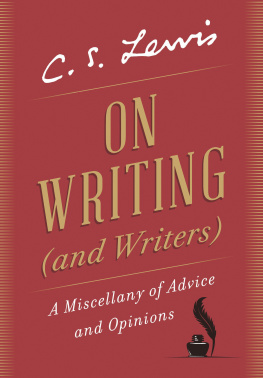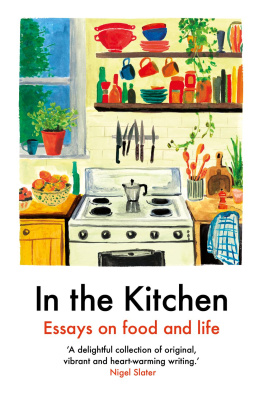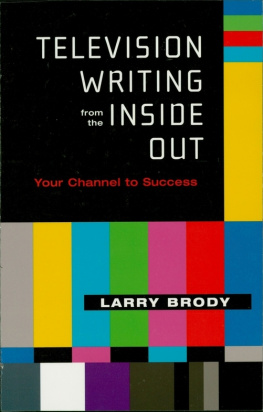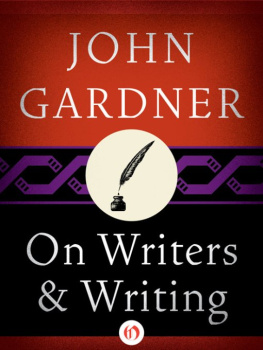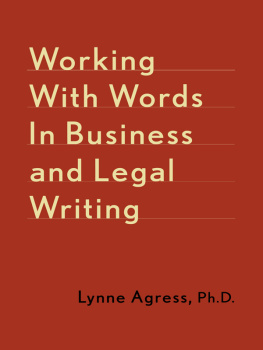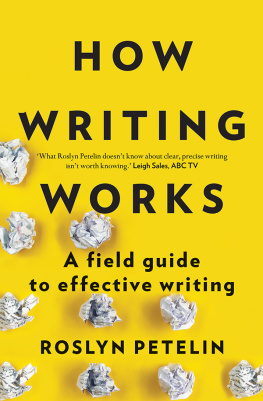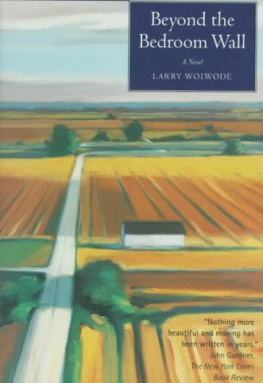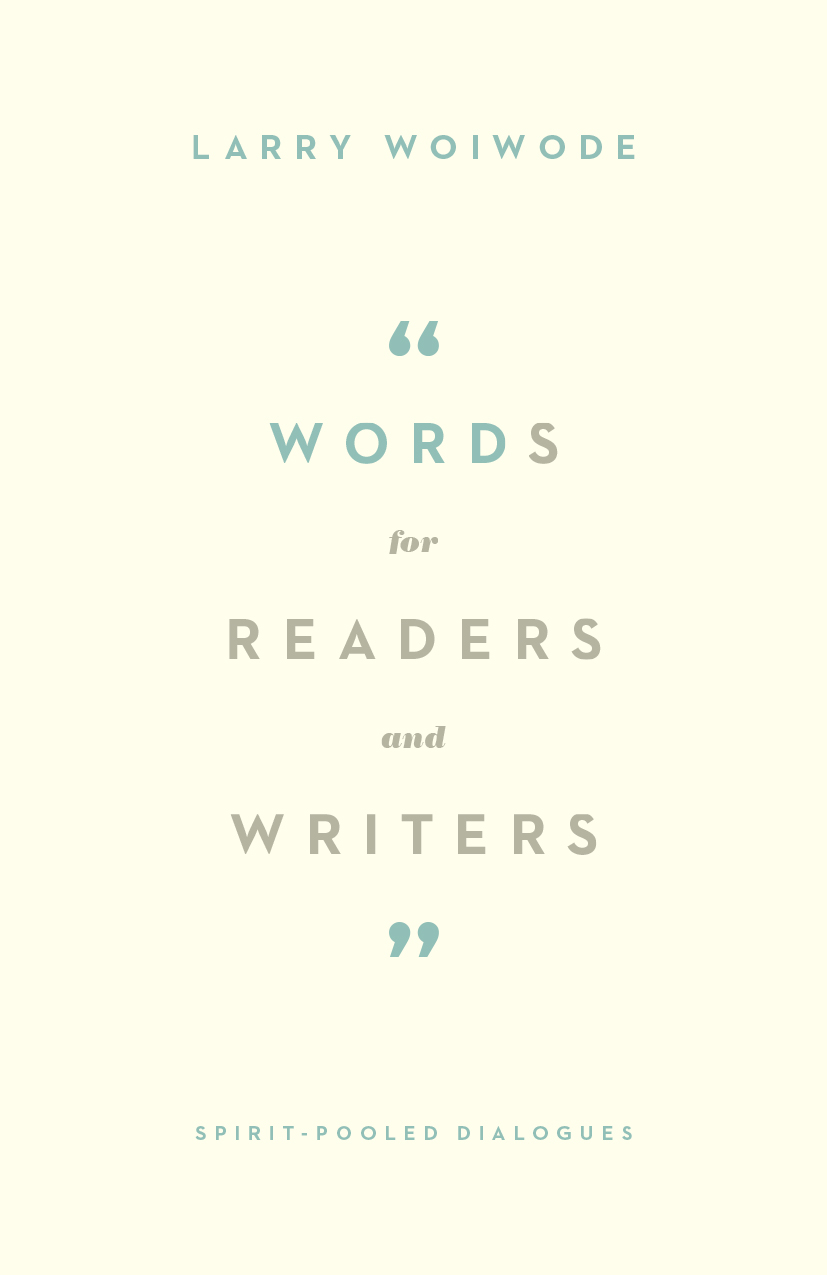Thank you for downloading this Crossway book.
Sign-up for the Crossway Newsletter for updates on special offers, new resources, and exciting global ministry initiatives:
Crossway Newsletter
Or, if you prefer, we would love to connect with you online:
In Words for Readers and Writers , Larry Woiwodeone of our most compelling and important contemporary voicesilluminates his life and his experience as a writer-of-faith, as a writer within whom and within whose works a profound Christian belief resides. In these essays and interviews, Woiwode takes us into his interior life, offering artful meditations on the holy acts of reading and writing. Woiwode explores what it means to be a writer-in-Christ, to celebrate the durability and holiness of language, to work at that place where the imagination and the soul intersect and flower. We should listen earnestly to what Woiwode has to say.
Gregory L. Morris, Professor Emeritus of American Literature, Penn State Erie; author , A World of Order and Light and Talking Up a Storm
I knew that I was in for a treat the moment I looked at the table of contents, which reads like a tempting menu of topics. When I started to read the essays I was captivated by the energy of Woiwodes mind and even more by how widely read and broadly informed he is. To read this book is to receive a liberal education. I believe that this is one of Woiwodes best books.
Leland Ryken, Professor Emeritus of English, Wheaton College; author, Christian Guides to the Classics series
A book on craft, yes, but more a book on living, Larry Woiwodes Words for Readers and Writers in my library sits between Flannery OConnors Mystery and Manners and John Gardners On Becoming a Novelist . Not since OConnor has a writer put the reader in such comfortable and uncomfortable places at the same time.
G. W. Hawkes, Professor of English and Creative Writing, Lycoming College; author, Surveyor and Gamblers Rose
Few writers can match Larry Woiwode for craft and care. Sentence by beautiful sentence he traces the lineaments of thought, feeling, and experience. He inhabits the roles that life has given him, as writer and critic, father and husband, and Christian, with a constant difficult grace. I admire his writing deeply; it is always gratifying to be in its presence.
Alan Jacobs, Distinguished Professor of Humanities, Baylor University; author, How to Think
The word words and the name Woiwode are not only similar sounding but are practically synonymous. Who better to parse the subject of words than Larry Woiwode, one of our countrys ultimate wordsmiths?
John L. Moore, author, The Breaking of Ezra Riley and Take the Reins
Why do you write? Where does it come from? What sort of life is it, anyway? We badger our writers with those questions certain that living that close to fire must surely have taught them something. Woiwode has been asked those questions many times, over the years, and this volume collects a vigorous, various set of answers. While settings and interlocutors shift, Woiwodes core insight, quietly returned to, remains always the same. What is writing but faith expressing itself through love?giving yourself over to that first stab of insight, spending yourself prodigiously for others, certain that the one who calls you has already given you all things. One can learn much here about reading and writing, but one can learn even more what it means to believe.
Thomas Gardner, Alumni Distinguished Professor of English, Virginia Tech; author, John in the Company of Poets: The Gospel in Literary Imagination
I loved it. Id like to read it again this weekend. The way Woiwode phrased things humbled me completely.... Lots of food for thought...
Victoria, college student
Metaphor is the meditative center of a writers inner universe. Thats just too cool. This essay got me reading sections aloud to my parents because I needed to gush about it with somebody. Woiwodes essays have been a great encouragementartistically and spiritually.
Phoebe, college student
The following essays formed an eerie architecture of meaning as I selected them from two drawers of a four-drawer file. The dialogues they record are both inner and outer, between me and memory and interviewers and editors. They deal with the act of writing, with a readers response to writing, and the ways we all use words, including Facebook entries, to fashion meaning for our liveseven identities.
Words about writing, once on a page, form pooling metaphors that a reader can enter into in a dialogue. Recurring motifs reflect across the pools and a variety of meanings form a growing unity. This is abetted by a spirited gravity that sets them in pooling emphases.
If thats what writers feel when they say theyre inspired, I feel and have felt inspired. The Spirit has pressed out a variety of views that counterbalance one another in the spirit-pooled dialogues of my title.
Part One: Uses of Words
ABCs That Tend to Family Unity was commissioned in 2008 by CommonBond of St. Paul, which is, according to its website, the Upper Midwests largest nonprofit provider of affordable housing. The piece was intended as preface to a book of photographs of CommonBond families, but the photographer did not find it to his liking, although the CommonBond editor did, and promised to use it elsewhere. It has grown from a one-page preface to a four-page essay.
Readers Literary Guide to Litigation appeared in the form it has here in the premiere issue of the Journal of Law and Interdisciplinary Studies , an Internet journal launched by the University of North Dakota School of Law (Issue 1, 2011).
The Worded Flood, Rural to Academy was commissioned as the introduction to a poetry anthology edited by James H. Trott, A Sacrifice of Praise , published by Oak and Yew Press, Philadelphia, 1998, and reissued by Cumberland House Publishing in 1999. Ive expanded the original into a minicommentary on college life and poetry.
Autobiography, Biography, Fiction, and Fact was presented as a substitute talk at a Milton Center conference, or as close as memory could cling to its original, The Uses of Biography, Autobiography, and Fiction as Fact, first given in 1999 at Union University in Jackson, Tennesseea substitute because the talk I intended to give, blossoming in my laptop, was destroyed in a head-on collision with a pickup that slid into our lane on the way to the Milton Center conference Beyond This Weight Is a Boundlessness, at Newman University in Wichita, Kansas, February, 2000. Ive redone the talk for the page and integrated it with a feuilleton titled The Sides to a Story, included in F. Scott Fitzgerald at 100: A Centenary Tribute by American Writers (privately printed by Quill & Brush, Rockville, MD, 1996).
Using Words, a Continual Spiritual Exercise was first presented at the Colorado College Symposium on Spirituality & Religion, Colorado Springs, on January, 19, 1994. Ive expanded and modified the talk to integrate it with the others.
Examining the Writers Image with IMAGE was generated by questions from the publisher and editor of Image , Gregory Wolfe, and the journals managing editor, Mary Kenagy Mitchell, and appeared on the Image website over the same season the story, That Old Dog, was published in Image: Art, Faith, Mystery (Fall 2011).


